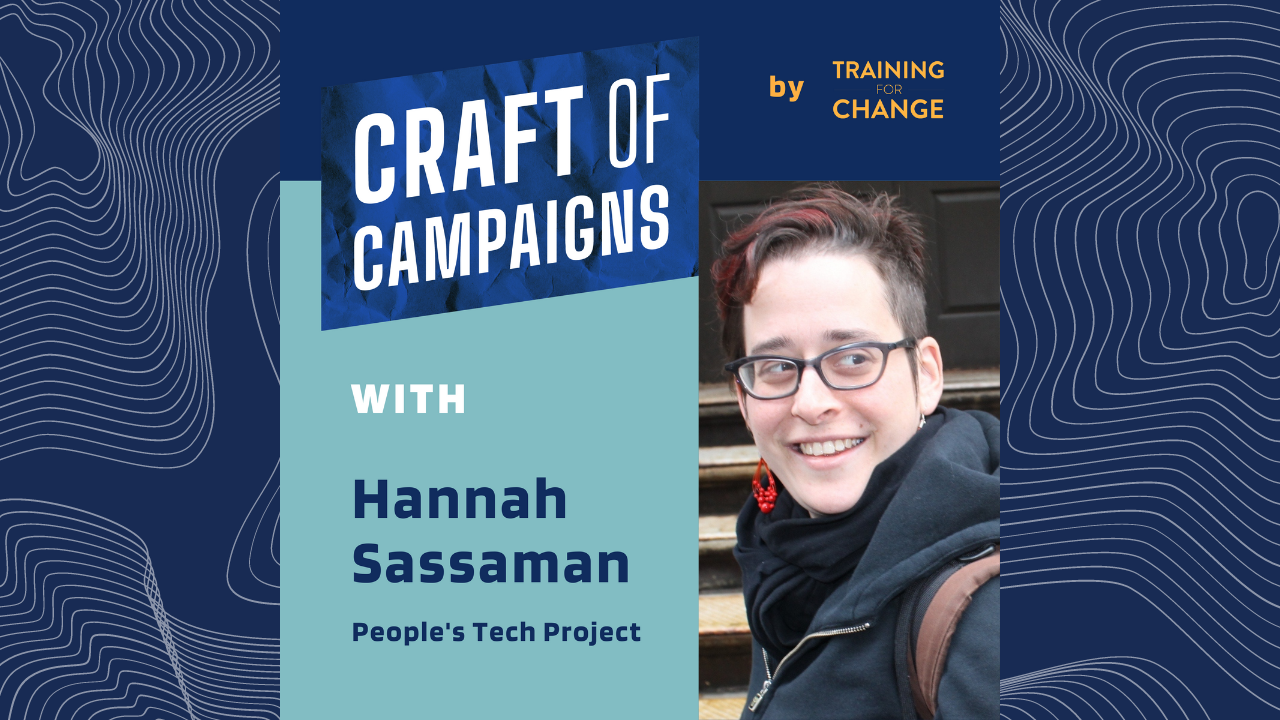Back in 2013, Philadelphia’s Media Mobilizing Project had no idea they would soon take on the country’s largest cable company in a two-year fight that would result in massively expanded low-cost and free internet and other services to working-class neighborhoods that Comcast had long neglected, along with resources to community centers and public school students. As then Media Mobilizing Project (MMP) policy director and People’s Tech Project founder Hannah Sassaman told me, “A friend of the organization who had gotten a job at the city came to us at MMP and said, ‘Do you know that, every fifteen years, Comcast has to sign a franchise agreement in order to provide service in the city?’ No one knew about that.” At the time, the organization was involved in local labor and education campaigns and ongoing youth-centered media capacity-building work. As Sassaman put it, “We didn’t have much experience with the ‘inside game.’”
A decade after the beginning of that campaign, many of the organizations involved in the CAP (Corporate Accountability Project) Comcast coalition have built out “inside game” and electoral strategies that have allowed them to elect national-precedent-setting figures like Philadelphia district attorney Larry Krasner. And in May, the city’s left power-building ecosystem will try to add to that list of accomplishments by elevating even more progressive champions to city council and the mayor’s office on a visionary people’s platform. The current city council has already enacted historic tenant protections, among other initiatives, after pressure from “outside game” allies.
In 2014, MMP was just trying to win issue-based campaigns around paid sick leave and education justice. But they soon realized that Comcast offered disproportionately bad service for poor and working-class Philadelphians. “So if you were living in Strawberry Mansion or far South Philadelphia and you were Black or an immigrant, it was really, really unlikely that you had broadband internet at your house. And this was in the 2010s, at a time when internet was a utility, a human right,” said Sassaman. In addition, Comcast played an outsize role in the city’s Chamber of Commerce, through which it opposed campaigns to get corporations to pay higher taxes to fund badly needed public services and infrastructure.
MMP organizers realized the cable franchise renewal process was a unique opportunity to change the city’s relationship to a dominant employer, political donor, and lobbyist and improve the material conditions of tens of thousands of people. “People hated Comcast. Nobody likes the cable company,” said Sassaman. MMP started to sketch out what would become the CAP Comcast campaign.
The group started hosting listening sessions around the city, collecting complaints and frustrations about the company’s service, and began inviting participants to envision what kinds of digital connection and access they wanted in their neighborhoods.
“We came up with a really beautiful vision of what we thought we deserved,” said Sassaman. “We thought Comcast should pay its fair share, that they should pay the property taxes they owed—that they should make sure every single school in the city of Philadelphia had a fully funded science, technology, engineering, and math (STEM) teacher and a technical teacher lead to support the technology in the classrooms, a computer for every kid, free and discounted internet for everyone across the city, internships and employment for [graduating] public high school students.”
While developing a visionary campaign agenda, the group was simultaneously researching the technical process of negotiating the franchise agreement to understand how it worked. Through this, they learned that many of their demands—like massively expanded low-cost internet and providing service to all city community centers—would have to exist outside of the main agreement text to provide specific services. These demands would need to be spelled out in “side letter agreements,” which the group thought at the time they could leverage for the most far-reaching parts of their agenda.
They also learned that the city hired a contractor to conduct a needs assessment that would ask residents about Comcast’s service and what they’d want to improve. Local coalition partners promoted the survey to their contacts, “and something like 96 percent of people who responded to the question ‘Is there anything else you want to tell us about Comcast?’ said things like, ‘They don’t pay their taxes’; ‘They need to pay their fair share’; ‘My service is terrible,’” Sassaman said. The survey also showed that, of the country’s six largest cities with Comcast services, Philadelphia’s cost the most and rated the lowest in performance.
But Philadelphia mayor Michael Nutter refused to release the results of the needs assessment to the public.
Fortunately for the organizers, Comcast was already facing national media scrutiny for its attempt to merge with Time Warner Cable, undermining federal net neutrality protections. The CAP Comcast campaign started to pitch local and national reporters with some of the customer horror stories they had collected. They earned coverage from as far away as The Guardian ,m aking it more difficult for Comcast and the mayor to defend their unwillingness to share the data, which the city finally released in April 2015.
The city held six public hearings on the company’s service over the following two weeks, “and so we were working to bring community members from those neighborhoods into our campaign,” explained Sassaman. “And the vast, vast majority of them said, ‘I can’t afford this service. You suck. I don’t have internet.’ They would sign up to testify, and then they would sign up for our next meeting.”
They needed to win the support of nine councilmembers. The group added two additional demands that they believed would earn them the support of two more councilmembers. For the first, several councilmembers were “really pissed off,” Sassaman said, about Comcast’s rule requiring existing Comcast customers to turn off their internet for ninety days in order to sign up for low-cost internet service. “The reason they do that is so they can claim you as a new adopter for their beautiful charity numbers showing how amazing they are at getting poor people online. Isn’t that nice? And that really angered these councilmembers.”
They added a second demand that the company provide reliable internet for the city’s recreation centers. “There were rec centers in the city that didn’t have an email address, let alone internet access for their staff and for community and young people coming in,” Sassaman said.
The spring 2016 primary election turbocharged MMP’s efforts to earn nine votes by the end of the year. Several sitting councilmembers were seeking reelection or competing to succeed Nutter as mayor. Other mayoral candidates, like Helen Gym, also incorporated the campaign’s demands into their platform.
The group’s nonnegotiable demands were included in the final agreement side letters approved by the council the following month, in the last possible city council session before the franchise expiration. “It was not the prettiest tied-in-a-bow win, but we got it,” Sassaman said. In addition to a significant expansion of the company’s low-cost or free internet service and elimination of the ninety-day window penalizing existing Comcast customers, they won a new grant-making policy table that allocates public and private funding to community organizations offering digital inclusion programs. The contract also included a goal of hiring fifty to one hundred students from the Philadelphia School District’s Career and Technical Education program, as well as a promise to pay Comcast workers at least $12.50 per hour (lower than the $15 per hour the campaign had demanded).
But the campaign fell short of its goals to force the company to pay more corporate taxes to shore up the city’s public school system.
Lessons for Organizers
Sassaman says campaign organizers learned a number of lessons that continue to shape the city’s progressive movements. In the years after the franchise renewal, organizers would learn that some of the side letter commitments were difficult to enforce, despite promises made during a public hearing. “What that has meant is that Comcast has consistently claimed, ‘We’re doing everything in the side letters.’ But when we or the city would ask them for evidence, they’d say, ‘We can’t provide you with that evidence because it’s a trade secret.’ We probably should have known that,” she said.
Sassaman attributes part of MMP’s inability to hold Comcast to the side letter agreements to the campaign coalition’s dissolution. Coalition members moved on to other campaigns including campaigns to limit the use of algorithmic assessment tools in criminal legal system decision-making. Instead of moving on, Hannah wishes the coalition had done a deeper assessment of the kind of collective power they wanted to build in Philadelphia long-term and what opportunities made the most sense for the city’s movement ecosystem.
One campaign ripple effect Sassaman identified was the subsequent formation of the Alliance for a Just Philadelphia, whose forty-plus organizational members convened following electoral and issue-based campaign “experiments” like CAP Comcast and Larry Krasner’s 2017 election bid.
None of these projects were or are perfect. But, Sassaman says, the campaign taught many the importance of coordinating in larger, more permanent coalition tables to build the practice of principled struggle and ground their strategies in shared analyses of the conditions they face.

